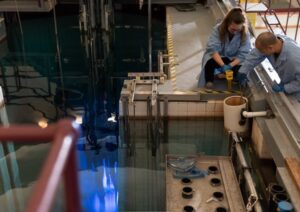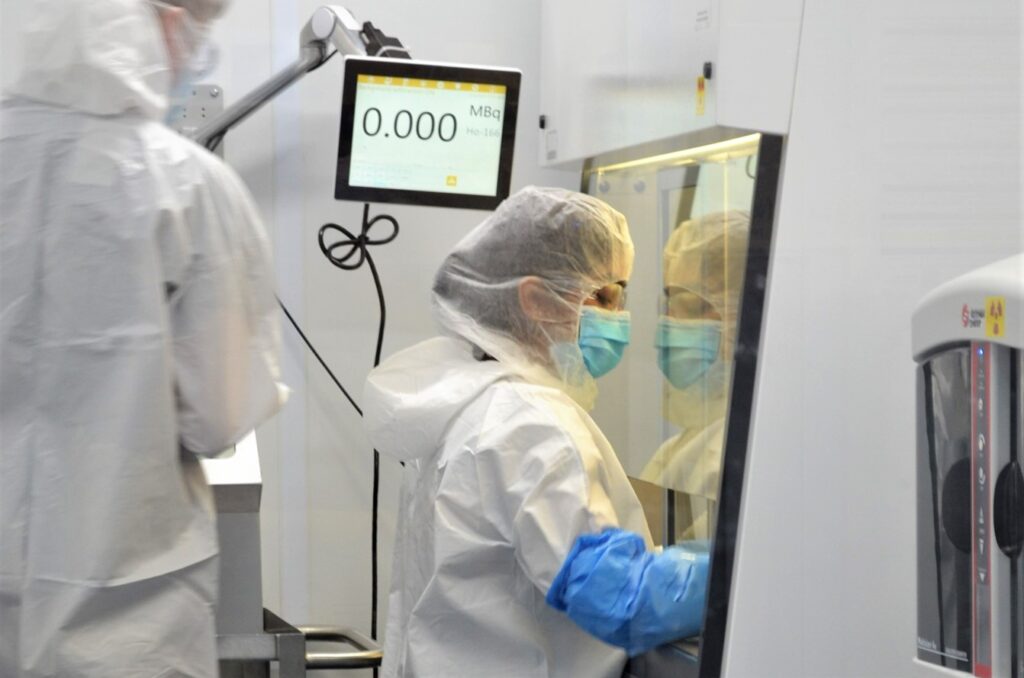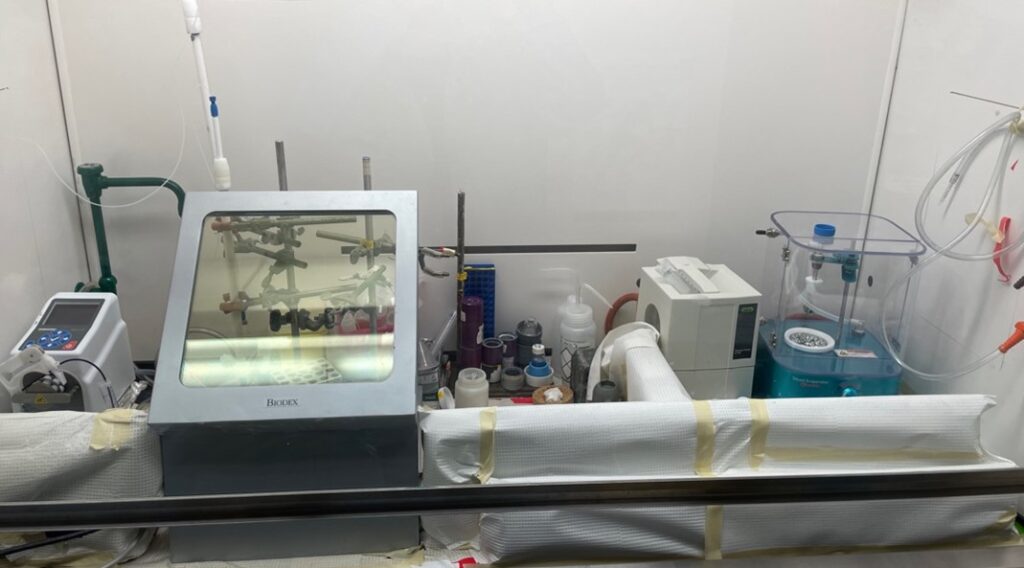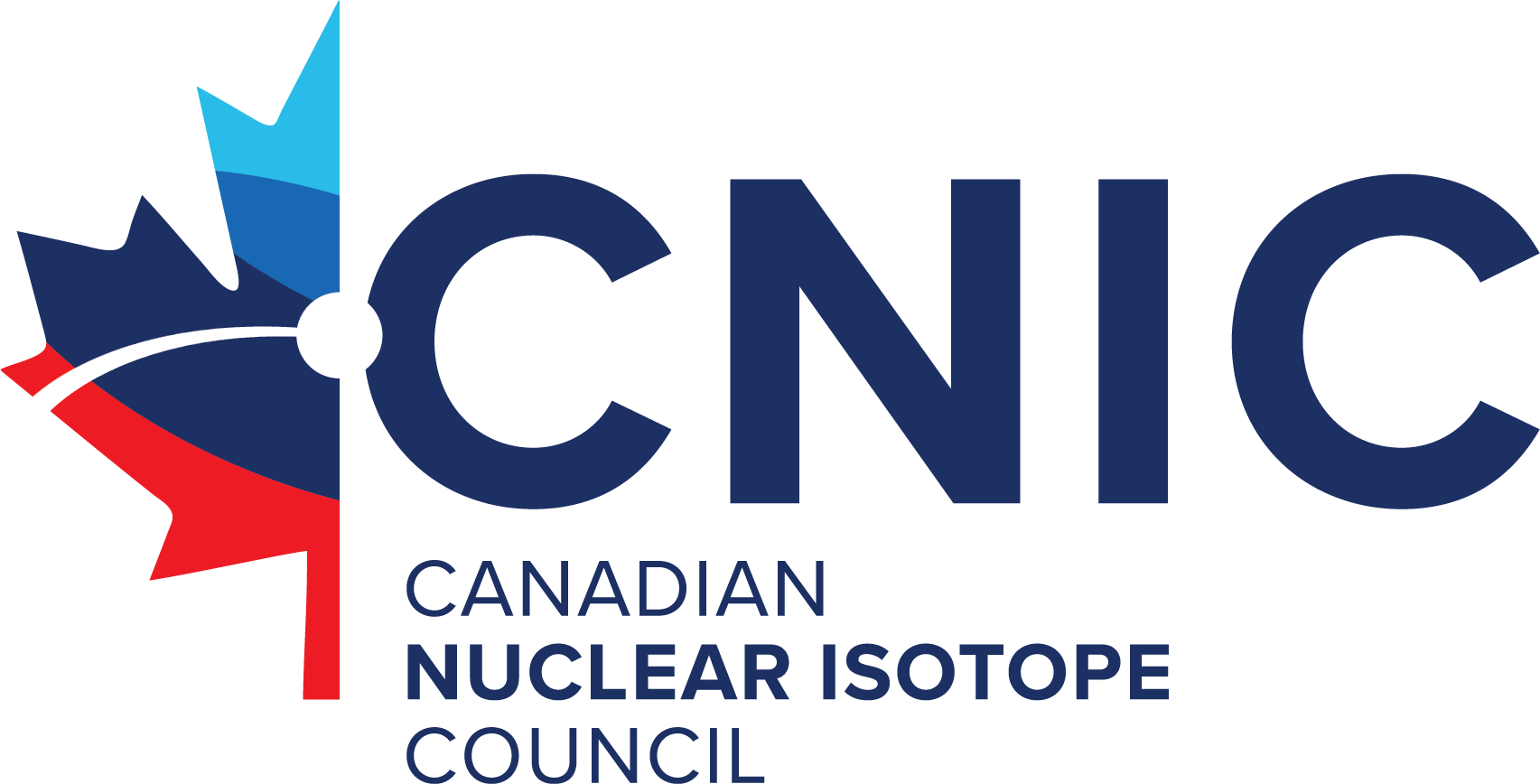 As a member of the Canadian Nuclear Isotope Council (CNIC) since 2018, McMaster University is committed to ensuring that Canada remains a world leader in the production of isotopes. With its world-renowned research facilities that enable discoveries in nuclear medicine, clean energy, and safety, McMaster plays a major role in global and domestic supply chains for several essential isotopes.
As a member of the Canadian Nuclear Isotope Council (CNIC) since 2018, McMaster University is committed to ensuring that Canada remains a world leader in the production of isotopes. With its world-renowned research facilities that enable discoveries in nuclear medicine, clean energy, and safety, McMaster plays a major role in global and domestic supply chains for several essential isotopes.
Within McMaster’s Nuclear Operations, the McMaster Nuclear Reactor (MNR) is a multi-purpose reactor that provides neutrons to produce medical isotopes and enable research. Since 1959, the MNR is Canada’s most powerful research reactor. Its open pool design gives ready access to the reactor core, which allows for easy insertion and removal of samples for neutron irradiation. The MNR facility also hosts a large hot cell used for gamma irradiation, nuclear research, and importantly, radioisotope production and processing. This industrial hot cell is one of three independent hot cell facilities on the McMaster campus.
Committed to making nuclear science accessible, McMaster’s reactor is open to the public, allowing more than 1500 McMaster students, members of the public, and industry to participate in guided tours every year. As part of its mission, the CNIC aims to raise awareness around the importance of nuclear medicine to Canada’s healthcare system. As the voice of Canada’s isotope industry, the CNIC is proud of work with McMaster to continue increasing public’s knowledge of nuclear sciences.
Adjacent to the MNR, McMaster has a unique suite of laboratories designed for nuclear research and radiopharmaceutical production. The High-Level Laboratory Facility (HLLF) is the only facility of its kind in Canada, and is home to the MNR’s isotope development lab, isotope quality assurance systems, radiochemistry and radiation biology research groups. Connected to the MNR via a rabbit line system, researchers in the HLLF can send small samples directly into the core of the reactor pool for short periods of time to enable nuclear research and the production of small batches of isotope materials.
The CNIC’s most recent publication, Isotopes for Hope: Canada’s Leadership Needed Now More Than Ever identifies the opportunities for Canada to leverage its expertise and infrastructure within the global supply chain for isotopes, as well as the barriers to unleashing our future isotope potential. One significant barrier is a shortage of fully-trained staff, which risks slowing growth in the isotope industry. Through its approach to hands-on, experiential learning and world-renowned nuclear faculty, McMaster University is working to ensure the next generation of isotope experts is prepared to support new innovation in nuclear science in the future.
The HLLF also hosts McMaster’s spinout companies, the Centre for Probe Development and Commercialization, Fusion Pharmaceuticals, and AtomVie Global Radiopharma Inc. that specialize in commercial radiopharmaceutical research and development and the GMP manufacturing for clinical and commercial supply of radiotherapeutics to be distributed globally. Together, experts at McMaster’s HLLF are working to irradiate important isotopes for the diagnosis and treatment of illnesses like cancer and produce life-saving radiopharmaceutical products for patients in Canada and around the world. McMaster has also produced a third spinout company, Fusion Pharmaceuticals, a clinical-stage biopharmaceutical company that develops radiopharmaceuticals for the treatment of cancer.


With its world-class facility and reputation as a leading research institution, McMaster is an important part of Canada’s Isotope Ecosystem. McMaster is the world’s leading supplier of Iodine-125, used to treat solid tumours, and produces 60% of the global demand – enough to treat more than 70,000 cancer patients annually. McMaster is also the largest producer of Holmium-166, used in radio-embolization microspheres to treat liver cancer. Additionally, much of Canada’s supply of Lutetium-177 to treat a variety of cancers is sourced from McMaster.
Importantly, a recent investment of $6.8 million from the Government of Ontario through the 2023 budget will allow the MNR to expand operations to 24 hours a day, five days a week. This expansion will increase the diversity and amount of isotopes produced by roughly three times the current production and will increase patient access to medical isotopes in Canada and globally.
As Canada seeks to expand its role in the global supply chain for medical isotopes, McMaster University will continue to be at the forefront of research and development to provide Canadians with the next generation of life-saving isotopes.
